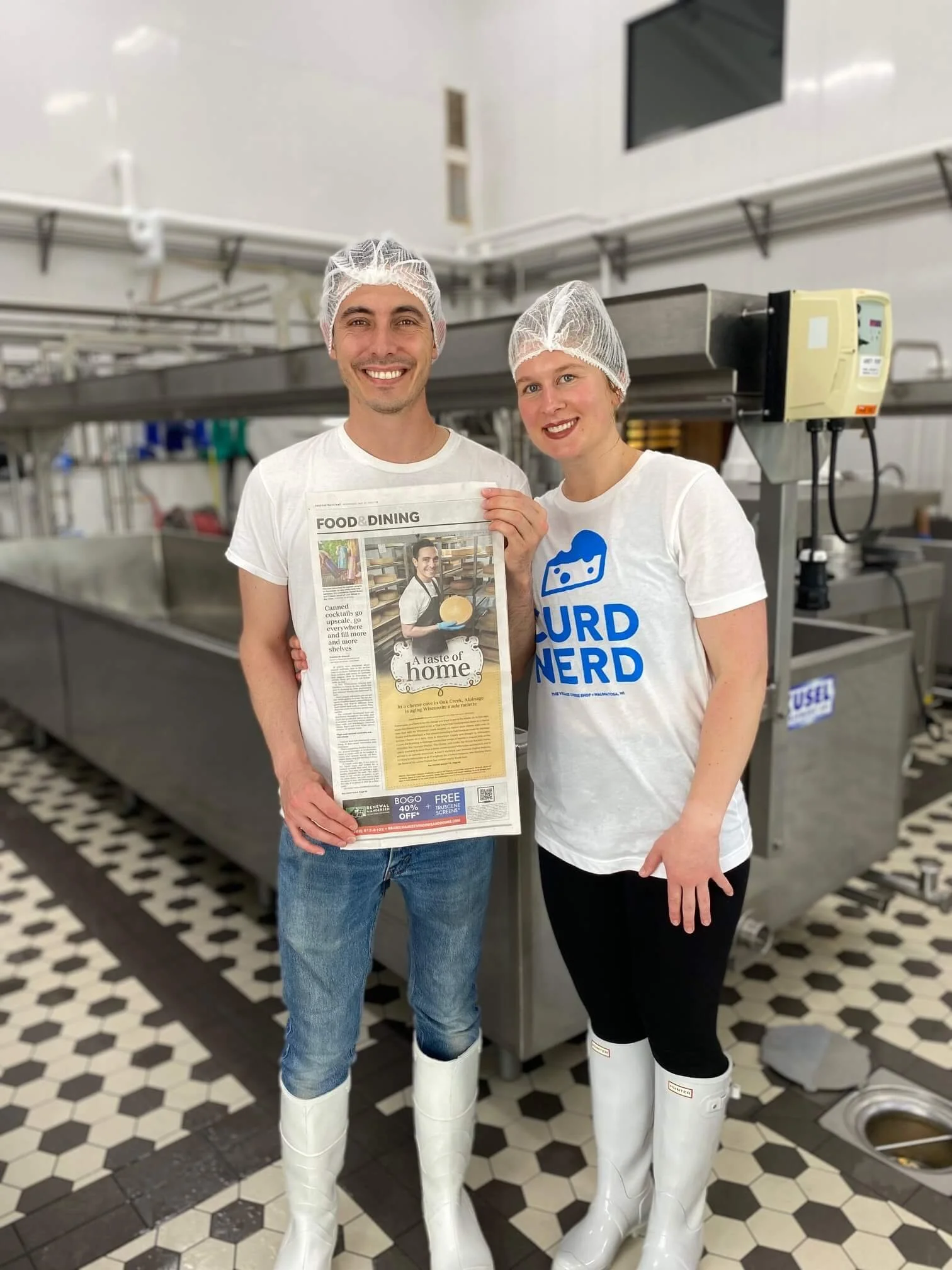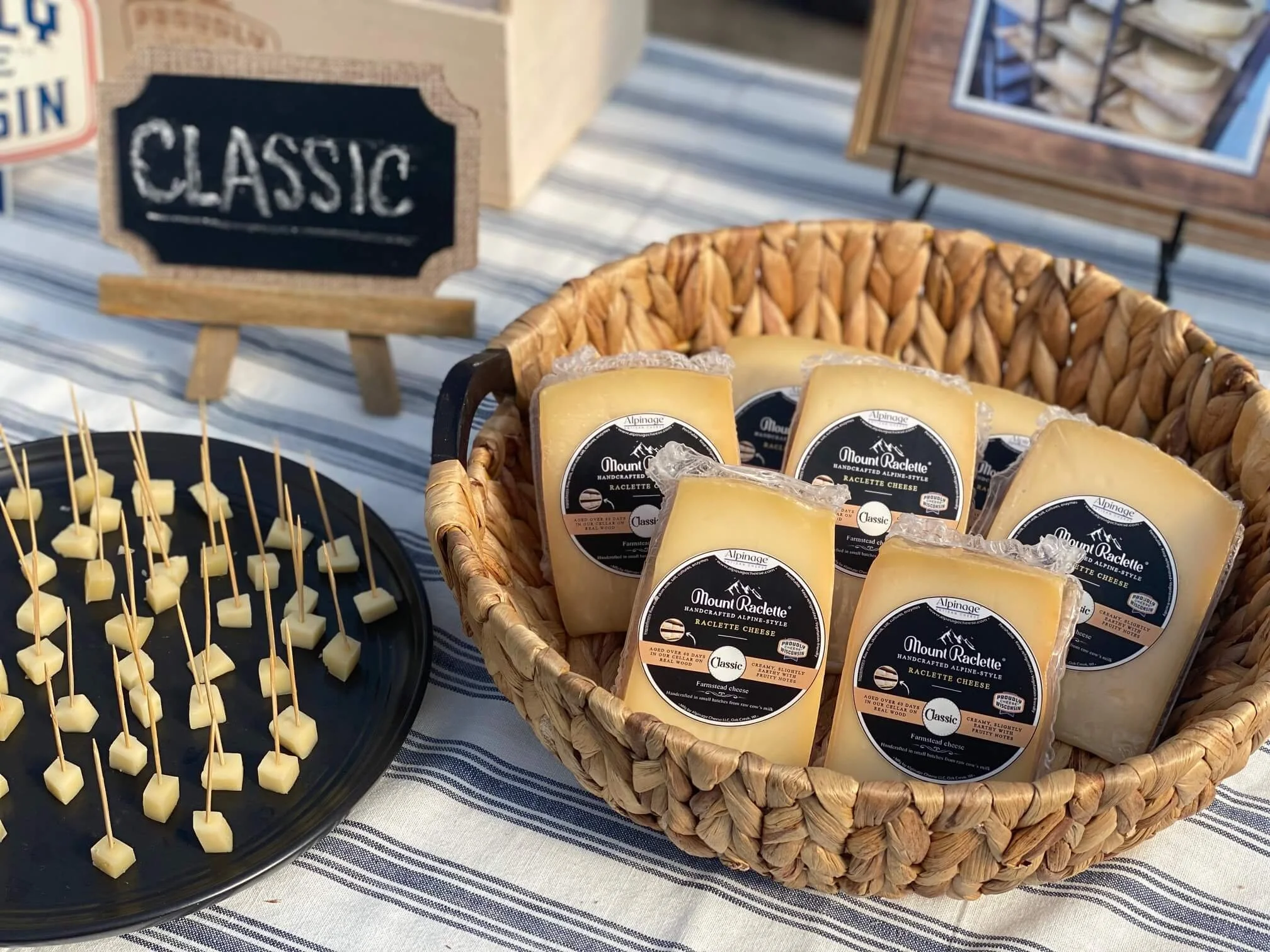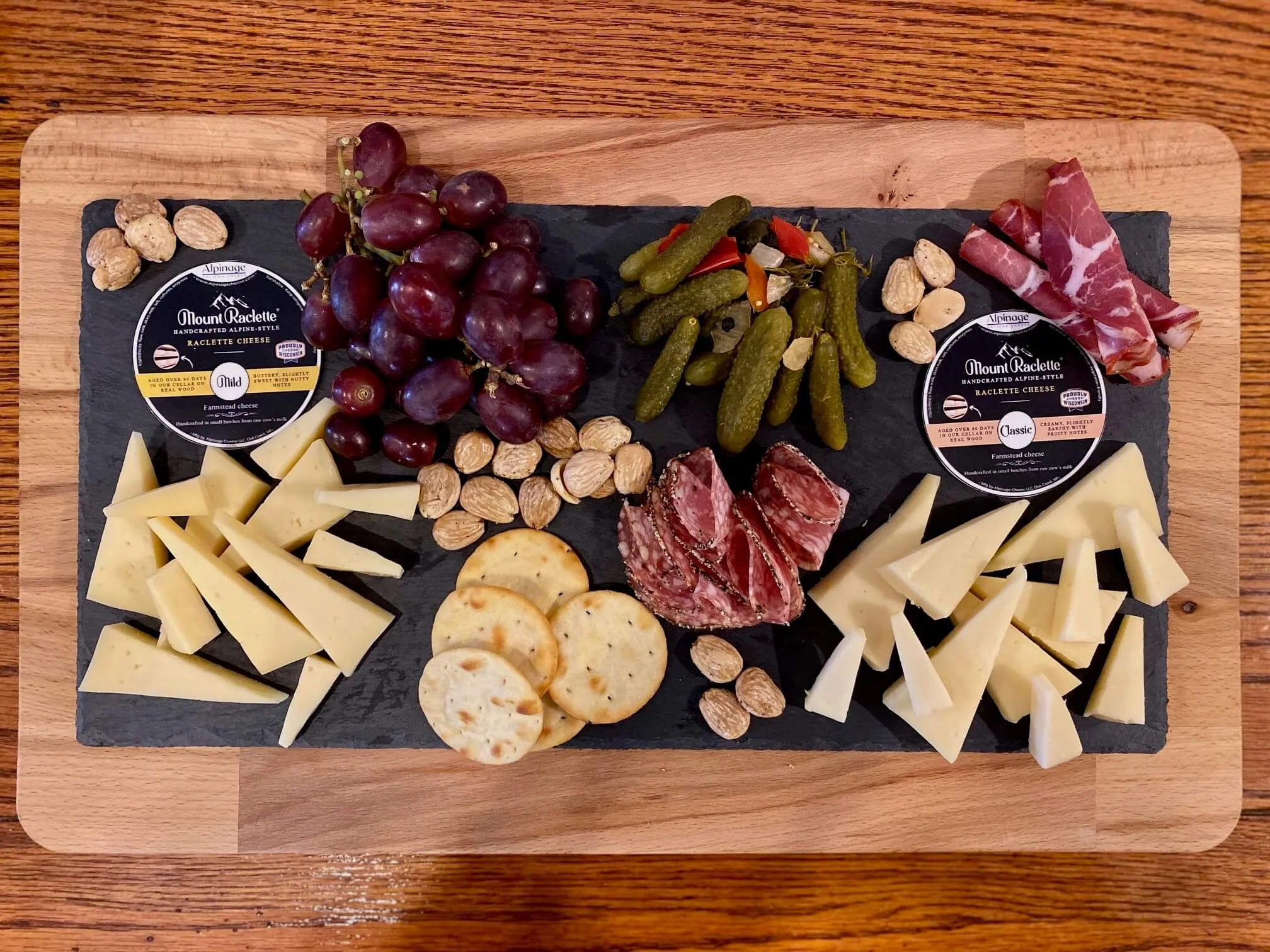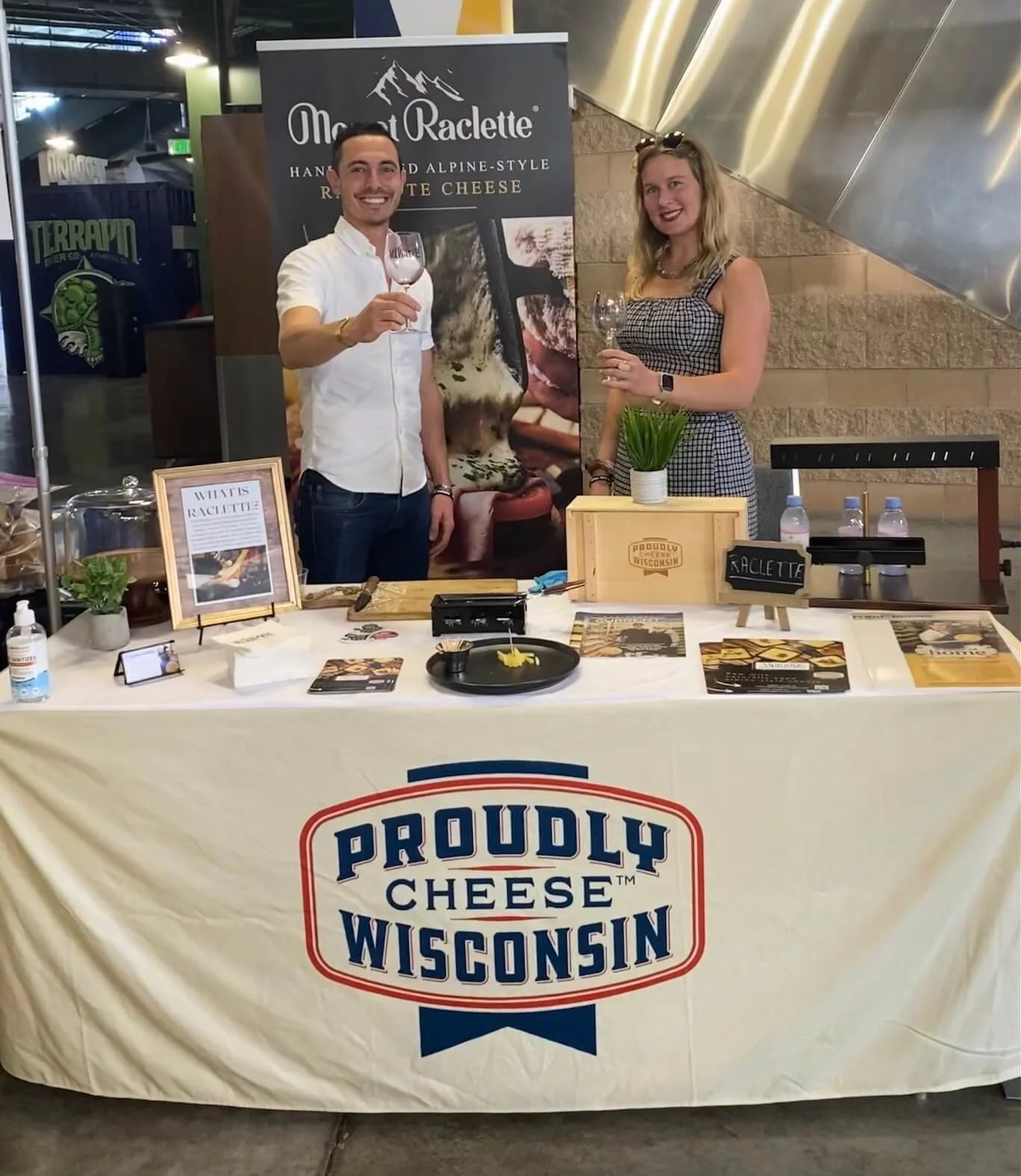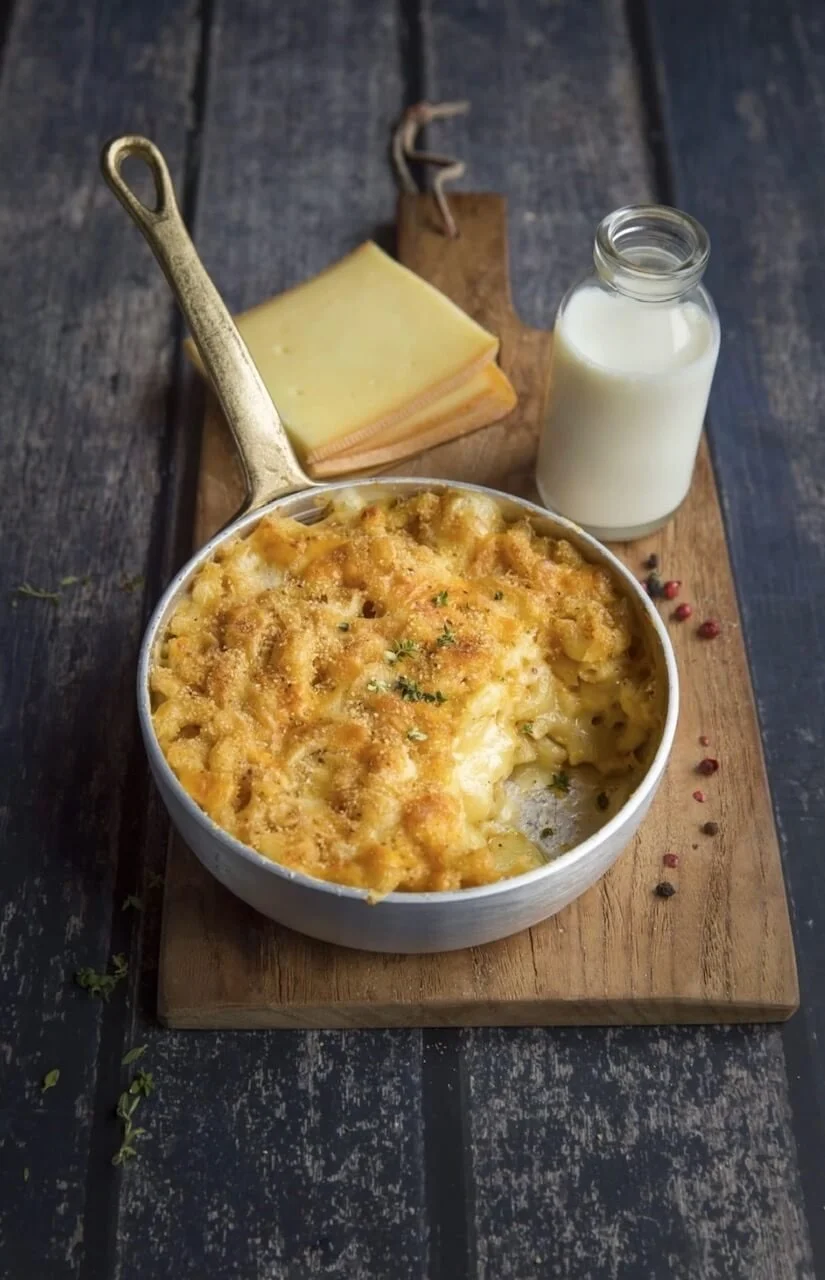The International Love Story That Led to Alpinage Artisan Cheese
Call it a cheesy love story.
Alpinage Artisan Cheese started out kind of like the Journey song, “Don’t Stop Believin’.”
Except Orphee Paillotin wasn’t from South Detroit, he was from Paris, and Paula Heimerl, though from a small town in Wisconsin, wasn’t living in a lonely world - she was living in Milwaukee, where she was working as an interior designer.
And they didn’t take a midnight train going anywhere, but they did talk past midnight. The pair met at a sports bar on Brady Street, where they were watching the French team play in the World Cup in 2014. “We pretty much immediately started talking about cheese and wine and bread and all of the good things in life,” says Heimerl. “We were watching a French soccer game, and he was a French guy in the bar, and we just hit it off.”
“I was working for a French company, and I was here,” Paillotin says. “But then I had to go back to France, and I didn’t move back until October or November of that year.”
All Roads Lead to Cheese
Heimerl grew up on a dairy farm in northeast Wisconsin, and her parents, Gerald and Elise, are the founders of Saxons Creamery, where they make a fresh asiago, Goudas, Cheddar and an alpine style cheese. “She couldn’t hide that she’s from a dairy farm,” Paillotin says.
Paillotin loved cheese but he was an I.T. engineer, not a cheesemaker. “When I met Paula, at the dinner table, it was always the joke that ‘You’re French, you’ve got to make cheese or wine,’” he says. “I love food, but I’m from Paris, not from the mountains or from a dairy farm. My family was in the restaurant business, and I was always into the food world, but I took a different path in the university.”
Still, in the back of his mind, Paillotin always thought he might someday work in the food world in some way. But as they dated and got to know each other, Paillotin eventually decided to get his cheesemaker’s license, which he worked on in 2019. Then, in 2020, COVID-19 hit, and that “Escalated our dream of pursuing cheese together,” Heimerl says. “We were both (temporarily) laid off from our normal jobs, so we were like, this is the time to really get something rolling with cheese.”
Making an American Raclette
The two decided to make an American style of Raclette because French Raclette is one of Paillotin’s favorite cheeses. They made their very first batches in Heimerl’s parents’ basement. “We had a small, 50-gallon vat down there,” she says.
They also worked with the Dairy Research Center in Madison to perfect their recipe, and the Dairy Farmers of Wisconsin helped them with the launch of their brand, and, of course, Heimerl’s parents really lent their knowledge and expertise, too. “Their influences gave us an advantage to getting this launched,” Heimerl says.
“I am so amazed at the help we’ve had,” Paillotin says. “Coming from France, which is a socialist country, I don’t think we would have gotten this much help in starting this company. And they’re still supportive.”
Naming the Cheese
The name - Alpinage Artisan Cheese - combines Alpine, because that’s where Raclette hails from, and affinage, the art of aging cheese. But while the name was relatively easy to come up with, the logistics of making the cheese were challenging. First, because they “didn’t have $20 million” lying around, they had to find a creamery, which would allow them to make their raw milk cheese, and then, they had to find a space to age it. They found a creamery in Kewanee, and they built an aging cellar in Oak Creek - the two communities are more than 200 miles apart - but they started making the cheese in Kewaunee, then aging it in Oak Creek, and then the two began selling it at farmers markets in 2021.
“It’s not a French style or a Swiss style of Raclette,” Paillotin says. “It has an American twist. I think it’s a mistake to try to reproduce the cheeses made in another country because people here have different palates and taste buds. Ours is slightly sweeter than a French Raclette, and it’s not as pungent.”
What’s Next
Besides their original Alpinage Mount Raclette, they also make an aged version, as well as a few flavored versions including cumin and truffle, and they’re working on making an American style of Reblochon.
Heimerl started working full-time at Alpinage first, and just a month ago, Paillotin left his job in the tech industry to work as a full-time cheesemaker. The two of them are both life and business partners. “We’re partners, life partners, and we haven’t yet (married), but it will come,” Heimerl says.
“We are complementary to each other,” Paillotin says. “I moved to Wisconsin, I met. Paula who’s from a dairy farm, and now we’re making cheese together. It was fate. We really didn’t have a choice - we were destined to do this.”
Alpine Mac n’ Cheese Recipe
A perfect melting cheese, Alpinage Mount Raclette can be used in sandwiches but also makes an excellent macaroni and cheese. This is the couple’s favorite recipe.
4 servings
1/2 lb. macaroni
3 tablespoons butter
1 2/3 cups milk
2 tablespoons flour
2 teaspoons paprika
3 pinches salt
4 turns of the pepper mill
1/2 lb. Mount Raclette
Breadcrumbs
1 teaspoon mustard
1) Cook macaroni according to package directions and drain.
2) While the pasta cooks, melt the butter in a saucepan over medium heat. When simmering, add the mustard, paprika, salt, pepper, flour and mix until the preparation darkens slightly.
3) Add the milk in a thin stream, stirring constantly for about ten minutes until the preparation thickens.
4) Remove from the heat and add 3/4 of the Raclette cheese, cut into small cubes, and stir until a creamy consistency is obtained.
5) Mix the macaroni with the sauce.
Pour half the pasta into a gratin dish, add half of the remaining cheese and add the rest of the pasta,
6) Cover with the remaining cheese
7) Sprinkle the breadcrumbs on top and bake at 350°F for ten minutes, until golden.
8) Add a final pinch of paprika & serve hot.

